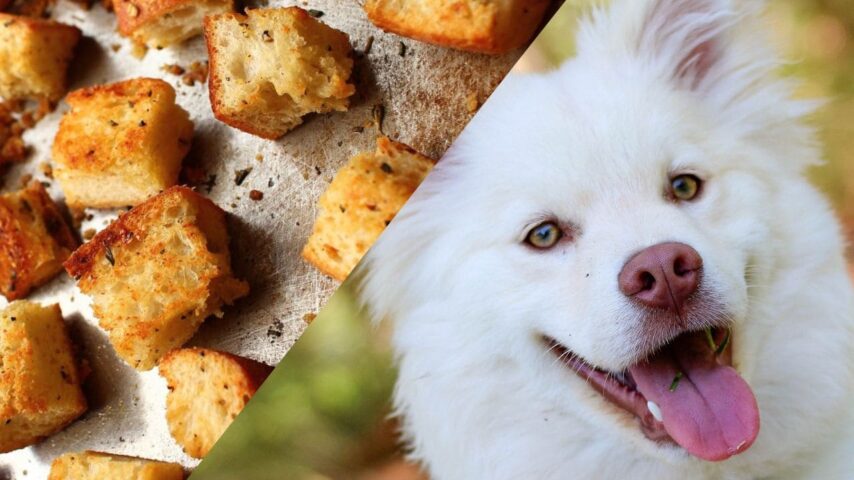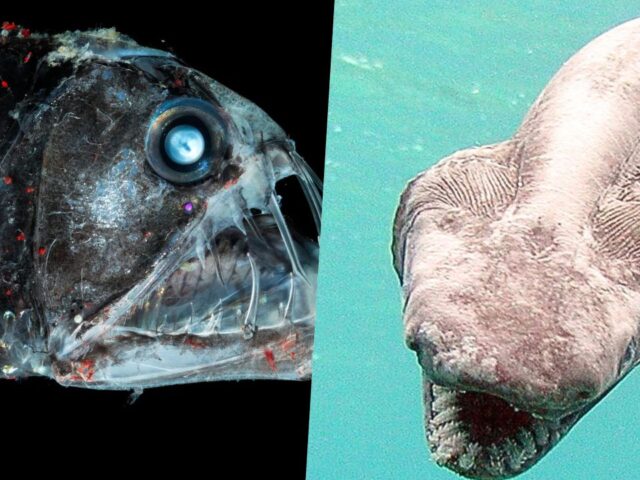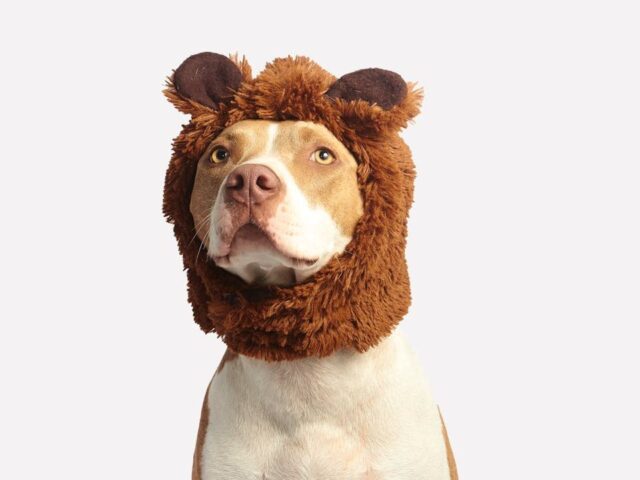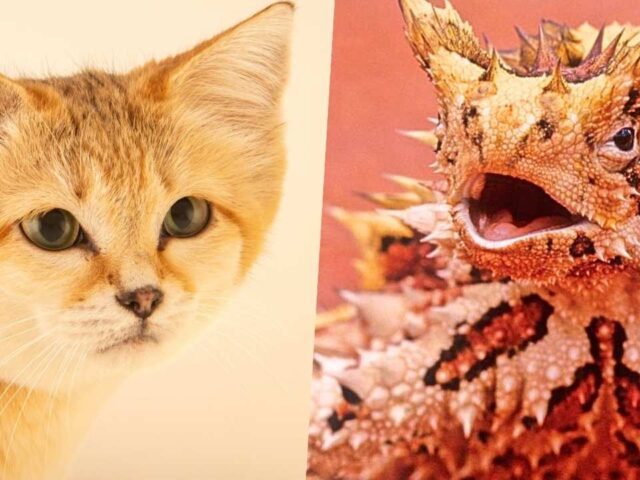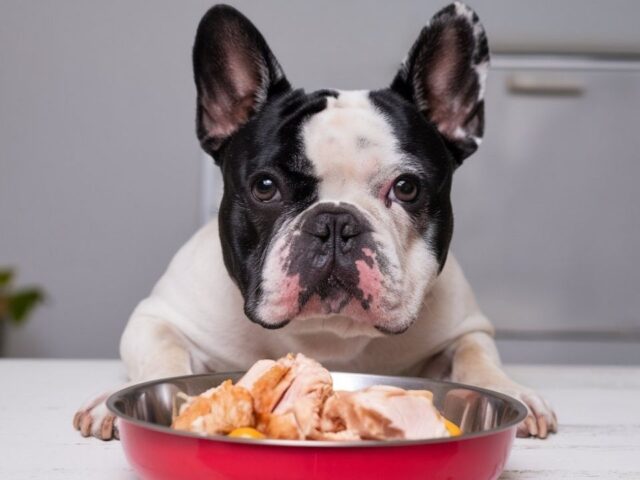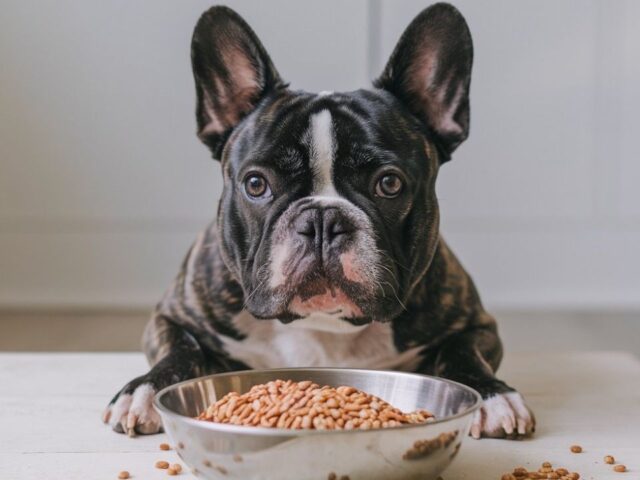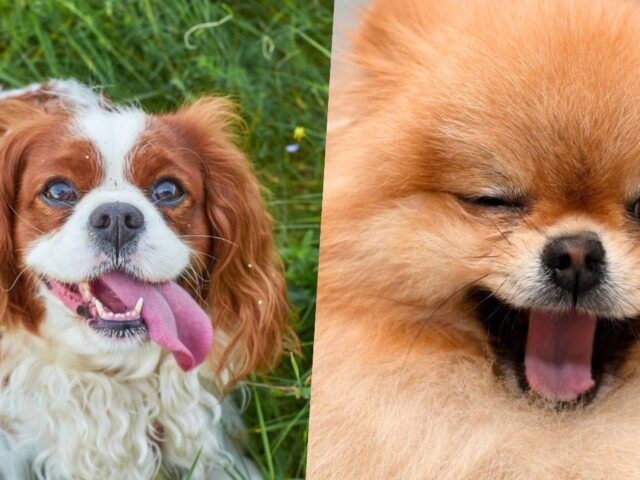As dog owners, we love to spoil our furry friends with treats and sometimes sneak them a bite from our plate. But it’s important to know what human foods are safe for canine consumption. One snack that might make you wonder is croutons – those crispy little cubes of bread that add texture to salads and soups. But Can dogs safely eat croutons?
Are there any benefits or risks associated with feeding them these crunchy morsels? In this blog post, we’ll dive into the nutritional value of croutons for dogs, discuss potential hazards, and explore healthier alternatives for your pup’s diet.
The answer to the question that whether dogs can eat croutons is “NO”. Croutons can be dangerous for dogs due to their high carbohydrate and fat content, as well as potential ingredients like garlic or onions that can be toxic.
Table of Contents
- 1. Key Takeaways
- 2. Risks And Nutritional Value Of Croutons For Dogs
- 3. The Importance Of A Balanced Diet For Dogs
- 3.1 Proper Nutrition For Optimal Health
- 3.2 Maintaining A Healthy Weight
- 3.3 Boosting Immune System Function
- 4. Safe And Healthy Alternatives To Croutons For Dogs
- 5. Tips For Introducing New Foods To Your Dog’s Diet
- 5.1 Start Slowly And Monitor Your Dog’s Response
- 5.2 Consult With A Veterinarian Before Making Dietary Changes
- 5.3 Be Mindful Of Seasonings And Cooking Oils
- 6. Conclusion: Can Dogs Safely Eat Croutons?
- 7. FAQs on Can Dogs Safely Eat Croutons?
Key Takeaways
- Croutons can be dangerous for dogs due to their high carbohydrate and fat content, as well as potential ingredients like garlic or onions that can be toxic.
- A balanced and nutritious diet is essential for maintaining a healthy weight and boosting immune system function in dogs – incorporating fresh fruits and vegetables such as apples, carrots, blueberries, sweet potatoes, cucumbers; lean protein sources like chicken breast, turkey meat or boiled egg whites are great options.
- Homemade dog treats made from natural ingredients such as peanut butter or pumpkin puree are healthier alternatives to store-bought ones.
- Before introducing new foods into your dog’s diet, start slowly; monitor their response closely; consult with a veterinarian before making significant dietary changes; avoid seasonings or cooking oils that might be harmful to dogs.
Risks And Nutritional Value Of Croutons For Dogs
Feeding croutons to dogs can be dangerous due to the high carbohydrate and fat content, as well as potential ingredients like garlic or onions that can be toxic to dogs.
The Dangers Of Feeding Croutons To Dogs
Feeding your beloved canine companion croutons may seem innocent enough, but there are potential dangers to consider. One primary concern is the ingredients found in many store-bought or restaurant-served croutons.
In addition to potentially harmful ingredients, croutons are typically high in carbohydrates and calories due primarily to their bread base. This can contribute to excessive weight gain in dogs when consumed regularly or in large quantities, putting them at risk for obesity-related health issues such as diabetes, heart disease, and joint problems.
Furthermore, some croutons contain butter or other unhealthy fats that could lead not only to weight gain but also pancreatitis – a painful inflammation of the pancreas that requires immediate veterinary attention.
Understanding The Nutritional Content Of Croutons
Croutons may seem like a harmless treat for dogs, but they offer little to no nutritional value. Made from bread that is typically high in carbohydrates and low in essential nutrients, croutons can contribute to weight gain if given too frequently or in large quantities.
Additionally, some types of croutons contain seasonings such as garlic or onion that are toxic to dogs and can cause gastrointestinal upset or even more severe health issues like anemia if ingested regularly over time.
The Importance Of A Balanced Diet For Dogs
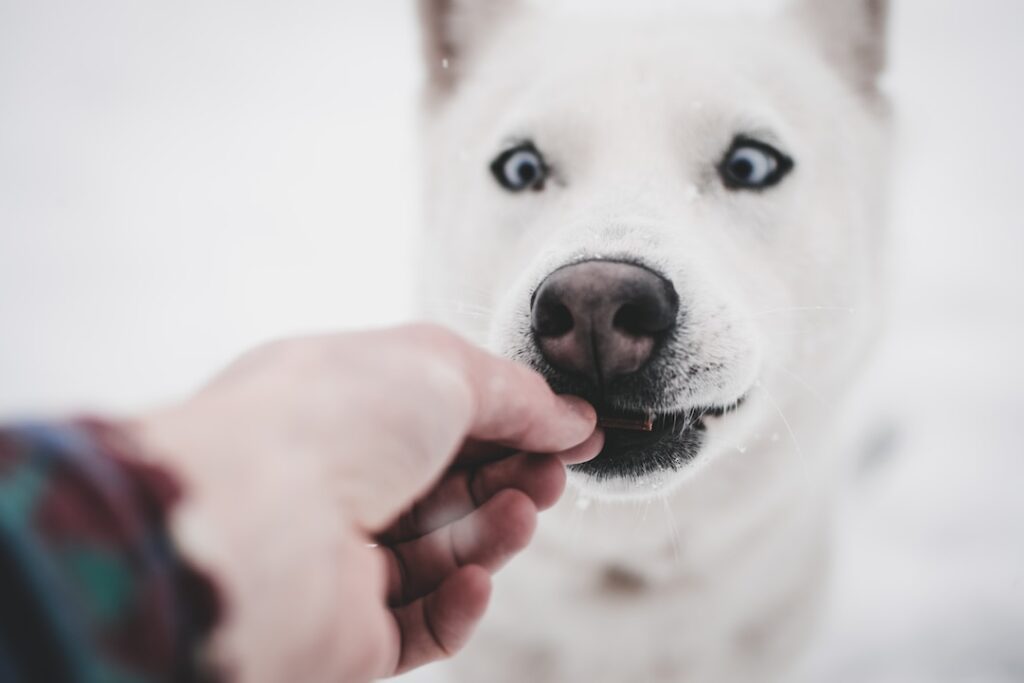
Dogs require a balanced diet to maintain optimal health, which includes proper nutrition for maintaining a healthy weight and boosting immune system function.
Proper Nutrition For Optimal Health
A balanced and nutritious diet is essential for the overall health of your furry friend. Feeding your dog a variety of high-quality proteins, complex carbohydrates, healthy fats, vitamins, and minerals can help boost their immune system function and maintain a healthy weight.
Incorporating fresh fruits and vegetables such as apples, sweet potatoes, carrots, green beans, or blueberries into their diet can provide added fiber and essential nutrients that promote optimal health.
Lean protein sources like chicken or turkey breast are also necessary components of your dog’s balanced diet.
Maintaining A Healthy Weight
Just like humans, dogs need to maintain a healthy weight to stay in good health. Feeding your dog excessive amounts of croutons can lead to weight gain, which increases the risk of other health issues such as heart disease and diabetes.
To help maintain a healthy weight for your furry friend, try incorporating fresh fruits and vegetables into their diet instead of giving them high-carb treats like croutons.
Lean proteins such as chicken or turkey are also great options for keeping up their energy levels without adding extra calories. And don’t forget about exercise! Regular walks or playtime can help keep your dog active and fit.
Boosting Immune System Function
A balanced and nutritious diet is essential to maintaining a healthy immune system in dogs. Nutrient-rich foods such as fresh fruits, vegetables, lean proteins, and gluten-free grains can help boost your dog’s immune system function.
For example, sweet potatoes are packed with vitamin A which helps promote healthy skin and coat while also strengthening the immune system. Blueberries are rich in antioxidants which protect against cell damage caused by harmful free radicals while also enhancing the body’s natural defense mechanisms.
Safe And Healthy Alternatives To Croutons For Dogs
Instead of feeding your dog croutons, opt for safe and healthy alternatives such as fresh fruits and vegetables, lean protein sources, and homemade dog treats.
Fresh Fruits And Vegetables
Fresh fruits and vegetables are a great option for dogs who enjoy snacks. These foods offer a variety of vitamins, minerals, and antioxidants that can help keep your dog healthy. Here are some fresh fruits and vegetables that you can safely feed your dog:
- Apples – Apples are high in fiber and antioxidants, making them a healthy treat for your dog. Make sure to remove the seeds and cut the apple into small pieces before feeding it to your furry friend.
- Carrots – Carrots are low in calories but high in fiber, making them an excellent choice for dogs who need to maintain a healthy weight. They also contain beta-carotene, which is great for your dog’s skin and eyes.
- Blueberries – Blueberries are packed with antioxidants and can help improve cognitive function in older dogs. They also taste great and make a sweet treat for your four-legged friend.
- Sweet Potatoes – Sweet potatoes are rich in dietary fiber, vitamin C, and potassium which helps promote good digestive health.
- Cucumbers – Cucumbers have a high water content that makes them refreshing snacks on hot days while providing necessary hydration.
Overall, fresh fruits and vegetables make an excellent addition to any dog’s diet, as long as appropriate quantities are given considering the nutritional requirements of each specific breed or individual dog by consulting with their veterinarian first.
Lean Protein Sources
Lean protein is essential for dogs’ healthy diet and growth. Here are some safe and healthy lean protein sources to consider:
- Skinless, boneless chicken breast: Chicken breast is a great source of protein and relatively low in fat. Make sure it’s cooked thoroughly without any seasoning or added sauces.
- Turkey: Like chicken, turkey meat can be a great lean protein source for dogs. Turkey breast is low in fat and high in protein.
- Fish: Many types of fish are nutritious for dogs. Salmon, trout, and sardines are rich in omega-3 fatty acids that support heart health and improve coat condition.
- Lean beef: Beef can be a good lean protein source for dogs if you choose the right cuts. Look for lean cuts like sirloin steak, ground beef (at least 90% lean), or beef tenderloin.
- Eggs: Eggs provide a complete source of amino acids that promote muscle development. Raw eggs should not be fed to your dog due to the risk of bacterial contamination, so make sure they’re cooked thoroughly.
By incorporating these lean protein sources into your dog’s diet, you can ensure they receive adequate nutrition while keeping them safe from potential harm caused by croutons or other harmful foods.
Homemade Dog Treats
Dog owners can make their own treats for their furry companions, which can be a healthier alternative to store-bought options. Here are some ideas for homemade dog treats:
- Peanut butter and banana bites: Mash up a ripe banana and mix it with peanut butter, then spoon the mixture into ice cube trays and freeze until solid.
- Chicken jerky: Cut chicken breasts into thin slices and bake in the oven on low heat until dried out.
- Carrot sticks: Raw carrots are a healthy snack for dogs, promoting good digestion and clean teeth.
- Sweet potato chews: Slice sweet potatoes into thin rounds or strips and bake in the oven until crispy.
- Frozen yogurt bites: Mix plain, unsweetened yogurt with diced fruit (such as strawberries or blueberries), then spoon into ice cube trays and freeze.
By making homemade treats, dog owners can control the ingredients going into their pet’s diet and ensure that they are providing them with nutritious snacks. It is important to consult with a veterinarian before making any dietary changes to a dog’s diet to ensure they are getting all necessary nutrients.
Tips For Introducing New Foods To Your Dog’s Diet
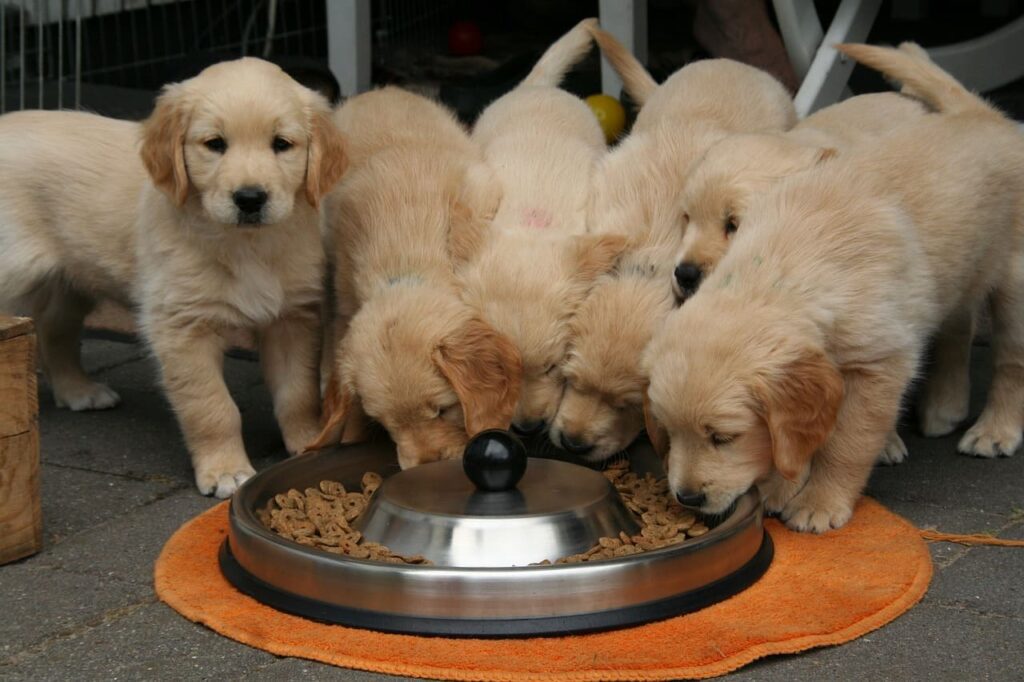
To ensure a smooth transition when introducing new foods to your dog’s diet, start slowly and monitor their response closely; consult with a veterinarian before making any significant dietary changes and be mindful of seasonings and cooking oils.
Start Slowly And Monitor Your Dog’s Response
When introducing a new food to your dog’s diet, it is important to start slowly and monitor their response. This will help you identify any potential allergies or digestive issues that your dog may have with the new food.
For example, if you are considering giving your dog croutons as a treat, start by offering them a small piece and observe their reaction over several hours.
Consulting with a veterinarian before making dietary changes is also crucial to ensure that the new food does not negatively impact your dog’s health. Additionally, be mindful of any seasonings or cooking oils used in the preparation of croutons as they can be harmful to dogs.
Other safe and healthy alternatives to croutons include fresh fruits and vegetables like apples, bananas, carrots and green beans; lean protein sources like chicken breast, turkey meat or boiled egg whites; homemade dog treats made from natural ingredients such as peanut butter or pumpkin puree.
Consult With A Veterinarian Before Making Dietary Changes
It’s always best to consult with a veterinarian before making any significant changes to your dog’s diet. They can help you determine the right balance of nutrients and identify any potential risks or concerns.
Veterinarians can also offer advice on safe human foods for dogs and suggest suitable alternatives for croutons. This can be particularly helpful if you are looking to incorporate more fresh fruits, vegetables, or lean proteins into their diet.
Remember that each dog is unique, and it may take some trial and error to find the perfect dietary regimen for your furry friend.
Be Mindful Of Seasonings And Cooking Oils
It’s important to pay attention to the seasonings and cooking oils used in croutons, as they can be harmful to dogs. Garlic and onion are examples of common seasonings that should be avoided when feeding dogs, as they can cause damage to their red blood cells.
In addition, certain oils such as butter or vegetable oil may contain trans fats that can lead to weight gain and other health issues for dogs. When introducing new foods into your dog’s diet, it’s best to stick with plain and unseasoned options.
You can also consider making your own homemade dog treats using safe ingredients like lean protein sources or fresh fruits and vegetables.
Conclusion: Can Dogs Safely Eat Croutons?
While croutons may seem like a harmless treat, they can pose risks to your dog’s health. It’s important to prioritize a balanced and nutritious diet, and opt for safe alternatives to croutons.
By monitoring your dog’s diet and introducing new foods gradually, you can help ensure a healthy and happy companion.
While Croutons May Seem Like A Harmless Treat, They Can Pose Risks To Your Dog’s Health. It’s Important To Prioritize A Balanced And Nutritious Diet, And Opt For Safe Alternatives To Croutons. By Monitoring Your Dog’s Diet And Introducing New Foods Gradually, You Can Help Ensure A Healthy And Happy Companion.
Feeding your dog croutons may seem like a fun and harmless treat, but it can actually be detrimental to their health. The common seasonings used in many crouton recipes such as garlic and onion can be toxic to dogs when consumed in large amounts.
Additionally, the high carbohydrate content in most croutons can cause weight gain and potential health issues for your furry friend.
To ensure that your dog stays healthy, prioritize giving them a balanced diet that includes safe alternatives to croutons. Fresh fruits and vegetables like lettuce are great options that provide necessary nutrients without any harmful additives or excess carbs.
Lean protein sources like chicken or fish can also benefit their overall health while providing essential amino acids for muscle development.
FAQs on Can Dogs Safely Eat Croutons?
It is generally not recommended to feed croutons to dogs, as they can be high in salt and fat content which could lead to digestive problems or overweight issues over time.
Croutons do not provide any significant nutritional benefits for dogs due to their low nutrient density and high caloric content. Dogs should consume a balanced diet comprised mainly of lean proteins, complex carbohydrates from vegetables and grains, healthy fats, vitamins, minerals and hydration.
Feeding your dog too many croutons could result in weight gain or obesity which can lead to other health problems such as diabetes, heart disease or joint pain later on in life. Additionally – excess sodium found in some types of seasoning may cause excessive thirst thus leading dehydration & kidney failure if overly consumed.
While homemade version may appear healthier ,it’s important remember that its ideal ingredients depend upon recipe used.Some recipes might include oil, margarine, salt sugar etc.so it’s always better consult with vet regarding what kind&amounts would best suit personal pet dietary requirements!In general though-sustainable sources like chicken breast, brown rice flour ,carrots/sweet potatoes/peas/green beans/broccoli florets mixed together gives owners more control over ingredient quality without risk additive chemicals typically added commercial food products geared towards mass production opposed being tailored specific pet dietary needs.
Read More Interesting Articles on Dogs:
- Can Dogs Safely Eat Corn? Expert’s Guide to Feeding Corn To Your Dog
- Do Dogs Really Have Uvulas? Everything You Need to Know
- Can Dogs Get Acne and How to Cure It!
- Can Dogs Eat Egg Rolls? Read Before Feeding Egg Rolls to Your Pet
- Can Dogs Eat Falafel? Everything You Need to Know
- Can Dogs Eat Bread? Health Facts and Safety Guide

